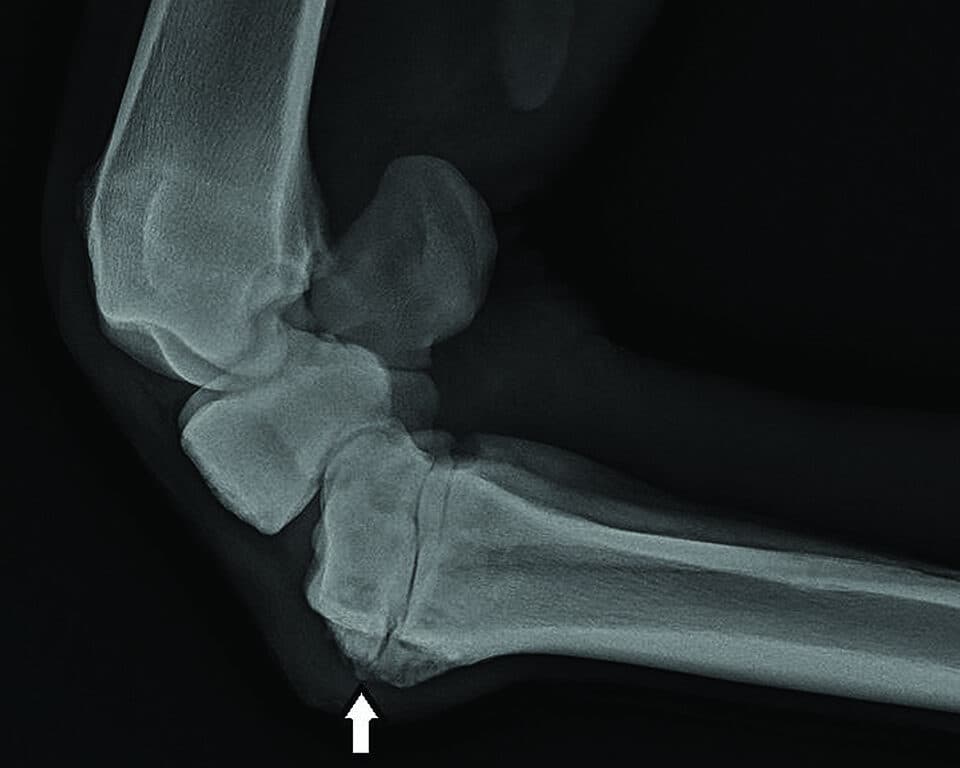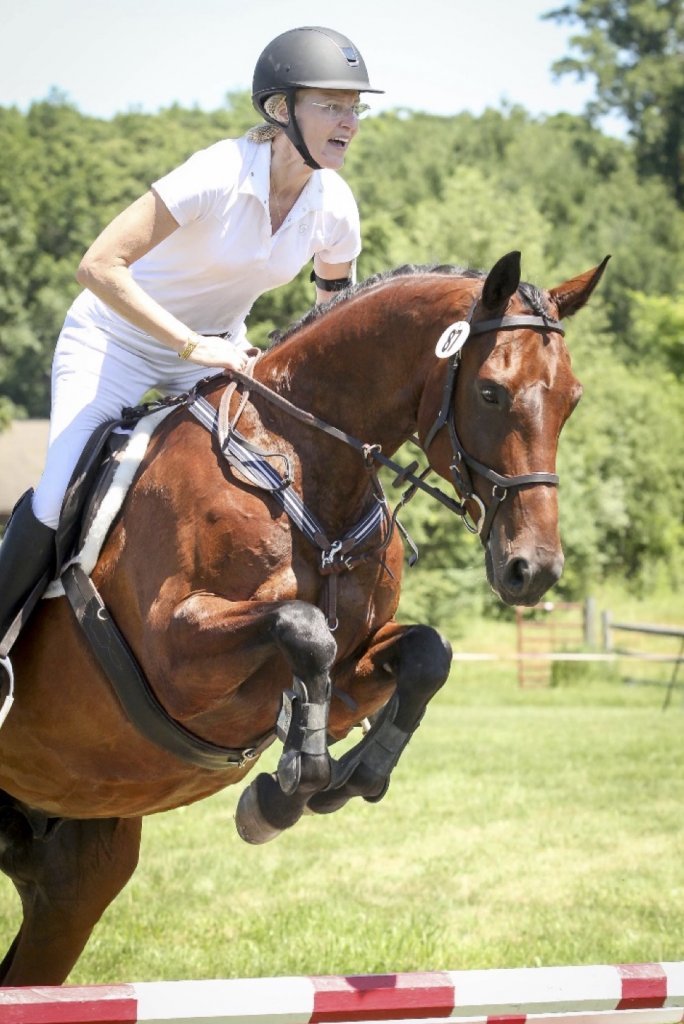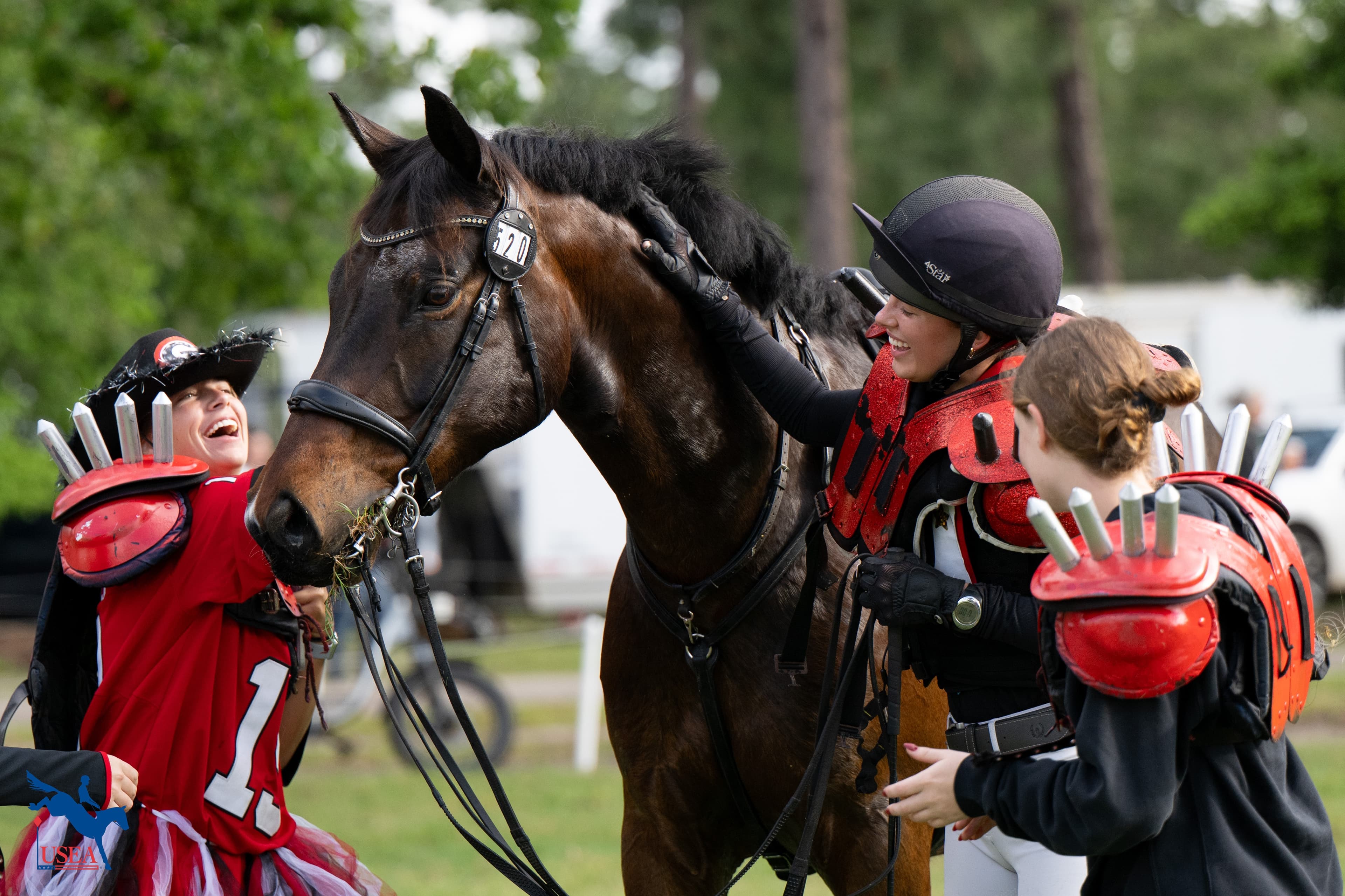Update from the Equine Medical Research Committee

The funding from USEA’s Equine Medical Research Fund is generating some RESULTS! Since 2013, every starter at a USEA event pays $1 towards equine medical research. This fee was created in order to address that underfunding of equine research in the United States. The USEA partnered with the Morris Animal Foundation to help select and track studies relevant to sport horses and to general equine health. Here are summaries of the results of two of the studies we funded.
RESULTS: Investigators advance cell-based therapy research for horses
Dr. Emma Adam and her research colleagues at the University of Kentucky analyzed the unique biology of equine cartilage cells. Presently, cell-based therapies cannot fully repair damaged cartilage and restore joint surface integrity. A major limiting factor has been scientists’ inability to produce robust cartilage cells for cell-based therapies that retain their original traits and characteristics when grown in culture, and are fully functional when administered to equine patients with damaged joints or degenerative joint diseases, such as osteoarthritis.
Tackling this issue, Dr. Adam and her team compared different cartilaginous tissues from horses. They isolated and sequenced genetic material from these tissues to see which genes are active and how the expression of different genes distinguishes different cartilage types. Their investigation achieved two important results. The researchers identified: 1) specific genes that can help evaluate the performance of therapeutic stem cells. (Currently, the benefits of cell-based therapies are hard to track in equine patients); and 2) novel cell types that warrant further study as potential candidate cells for cell-based therapies to repair articular cartilage in synovial joints.
Healthy cartilage absorbs shock and reduces friction in joints when a horse moves. An injury that damages joints and surrounding cartilage can lead to pain, loss of mobility and osteoarthritis. Researchers hope that emerging cell-based therapies, under the broad heading of regenerative medicine, will eventually help repair these types of injuries. Dr. Adam’s study provides new data for the search for robust cell-based therapies that will help restore articular cartilage function in horses with damaged joints associated with osteoarthritis and other degenerative joint diseases.

Taking x-rays of the hock. USEA Photo.
RESULTS: Researchers Verify Genetic Mutations for Osteochondrosis Risk in Horses
Osteochondrosis (OC) is a developmental orthopedic condition commonly diagnosed in young horses. The disease is caused by abnormal cartilage development resulting in the formation of lesions in joints, with the joints of the hind limbs most commonly affected. Osteochondrosis can be a mild to severe disease, but almost always requires surgical correction to prevent further joint damage. The disease results from a complex interplay of genetic and environmental factors. Attempts to influence the environment have had limited success in controlling the disease.
Understanding the genetics behind osteochondrosis represents the best chance for OC prevention. Some horse breeds, including Standardbreds, Warmbloods and Thoroughbreds, have a higher incidence of OC, emphasizing the genetic component of the disease. Researchers from the University of Illinois and the University of Minnesota identified several genetic mutations associated with OC in a population of yearling horses born and raised on a single breeding farm in the United States. To add statistical value to their findings, the team validated their data in a second, unrelated population of horses from Norway. The results of this study were a first step toward the team’s long-term goal of creating a genetic risk model for osteochondrosis that could be applied to individual horses.
Defining the genetic and biomechanical factors in OC development will improve early intervention to help reduce the risk of clinical disease in individual horses and high-risk breeds. The new information gained from these investigations will help guide management changes and also aid in informed breeding decisions to reduce disease incidence in horses.
The EMRF Committee received several thank you letters from the last batch of researchers who received USEA funding. The most fun letter was this one, from fellow eventer Dr. Stephanie Valberg! (The committee had no knowledge that the researcher was an eventer when the funding decision was made. But it’s great fun to find that out!)

Dr. Stephanie Valberg and her warmblood gelding, Cajun. Photo courtesy of Dr. Stephanie Valberg.
“Thank you so much for supporting our research grant to investigate whether horse’s underlying susceptibility to tying up is due to a unique recently discovered protein called sarcolipin. I am really excited about this project and energized to work with such a distinguished group of researchers as Dr. Dave Thomas and his colleagues in Minnesota. Collaborations where you can focus the insights of renowned basic scientists like Dave on vexing problems that affect horses can be really powerful. The project is going well.
I really appreciate the support of the USEA. I am myself a member and longtime eventer with a pause in the middle for school and kids. I currently have a young Warmblood that I have been competing with at Beginner Novice. We moved from Minnesota to Michigan this year and his dressage and stadium have been terrific but it has been a real challenge to get him (and myself) to settle in and competing on new cross-country venues. I am hoping for better things next season and a bump up to Novice! One of the things I love about the sport is that it is so challenging. It’s a good mind set for doing equine research."















